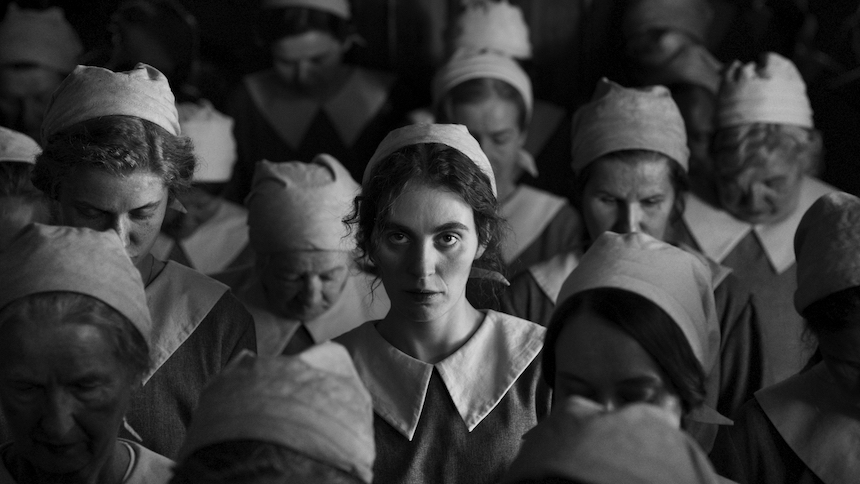Cannes 2024 Review: THE GIRL WITH THE NEEDLE, A Potent Period Drama

One of the first nominees for the Palme d’or that was presented this year at the Cannes International Film Festival was The Girl with the Needle (Pigen med nålen), a great Danish drama, shot in black and white, set at the end of the First World War and in the post-conflict period.
The protagonist is Karoline (Vic Carmen Sonne), a young woman whom we meet while her landlord evicts her for nonpayment. Evidently her situation is precarious, in addition to the fact that she has no news about her husband from the front, nor a certificate of his death that could allow her to collect a subsidy. She works in a sewing factory and eventually begins a relationship with the owner (Joachim Fjelstrup), who knows her situation and offers her support.
Magnus von Horn, director and co-writer, is interested in creating a potent portrait of the period, which is why he intertwines several themes that support the roughness of the tale. Personally, the series Boardwalk Empire, but also the history of horror cinema itself, led me to pay attention to the fact that soldiers who in previous times wouldn’t have survived their wounds, returned from the First World War disfigured, they wore masks and, certainly, struggled to integrate into society.
There’s that character from Boardwalk Empire who constantly provokes fear in a child and also what underlies those mundane “monsters” in films like 1925’s The Phantom of the Opera. In The Girl with the Needle, von Horn connects these aspects to freak shows and is probably an admirer of Tod Browning's pre-code horror masterpiece Freaks.
The Girl with the Needle becomes a clash of social classes when it turns out that the mother of the factory owner is a baroness who doesn’t support her son marrying our protagonist, who’s pregnant. The plot doesn’t stop there, though, since the film is also inspired by a true crime: the case of a serial baby killer (played here by Trine Dyrholm). Seemingly it’s a movie that wants to do too much; however it manages to make its story flow and, as I said, the director fulfills his mission of taking us into a time of severe days and mundane horror.
What would cause a mother to want to abort or give her baby to someone else to have a better life; what would cause someone to have to deal with their reality, their regrets or probably undiagnosed mental problems, using morphine or even ether (echoes of The Master here); and of course pure horror and madness, everything is present in The Girl with the Needle – also, yes, a hint of hope at the end. If you ask me, it could appear in the final Cannes awards, especially the two main actresses.







